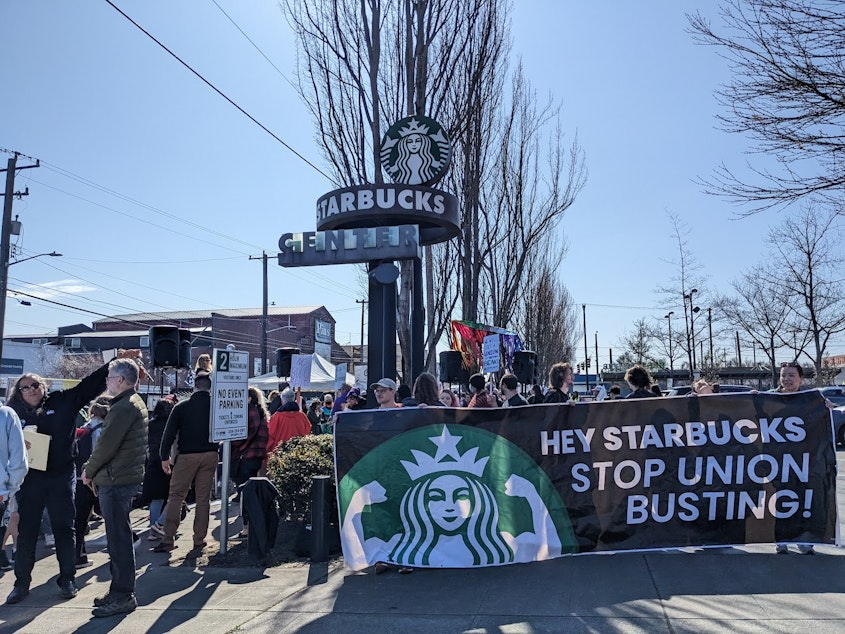Starbucks union negotiations resume after long impasse

Ari Bray has worked at Seattle Starbucks stores for nearly five years. They rely on the company for health insurance to cover an expensive Chrohn’s disease medication. But to keep that insurance, Bray has to work an average of 20 hours a week, which the company doesn’t guarantee. At one point, they had to step down from a manager to barista role to get the requisite hours, taking a pay cut in the process.
“I don't like how precarious that is and how the price of it can change from year to year,” Bray said. “I would really just like that to be a little bit more stable so that I don't have to possibly be on the hook for $10,000 on short notice.”
Bray is one of five Seattle area delegates who traveled to Atlanta Wednesday to negotiate with Starbucks for more control over their schedules, among other goals. The meeting represents a thaw in the icy relationship between Starbucks and Workers United, which represents more than 400 stores.
Starbucks Communications Director Rachel Wall noted that the company’s health insurance benefits are more generous than the industry average. Still, Wall said Starbucks is eager to resume negotiations and hear the union out.
“For our partners who have chosen union representation, fulfilling our partner promise to all partners means working earnestly to progress these negotiations towards first contracts to address the unique needs of partners in these stores,” Wall said.
Unionized stores sent more than 150 delegates to the Atlanta talks. Although contracts will be negotiated on a store-by-store basis, the goal of the meetings that started Wednesday is to establish a negotiating framework that stores can follow.
Workers United has filed hundreds of unfair labor practice complaints against Starbucks with the National Labor Relations Board for an alleged anti-union campaign. Some of those tactics were the subject of a case heard by the Supreme Court this week concerning the NLRB’s enforcement authority. But in recent months, Starbucks has shifted its approach toward the union, pledging to reach a contract by the end of the year.




